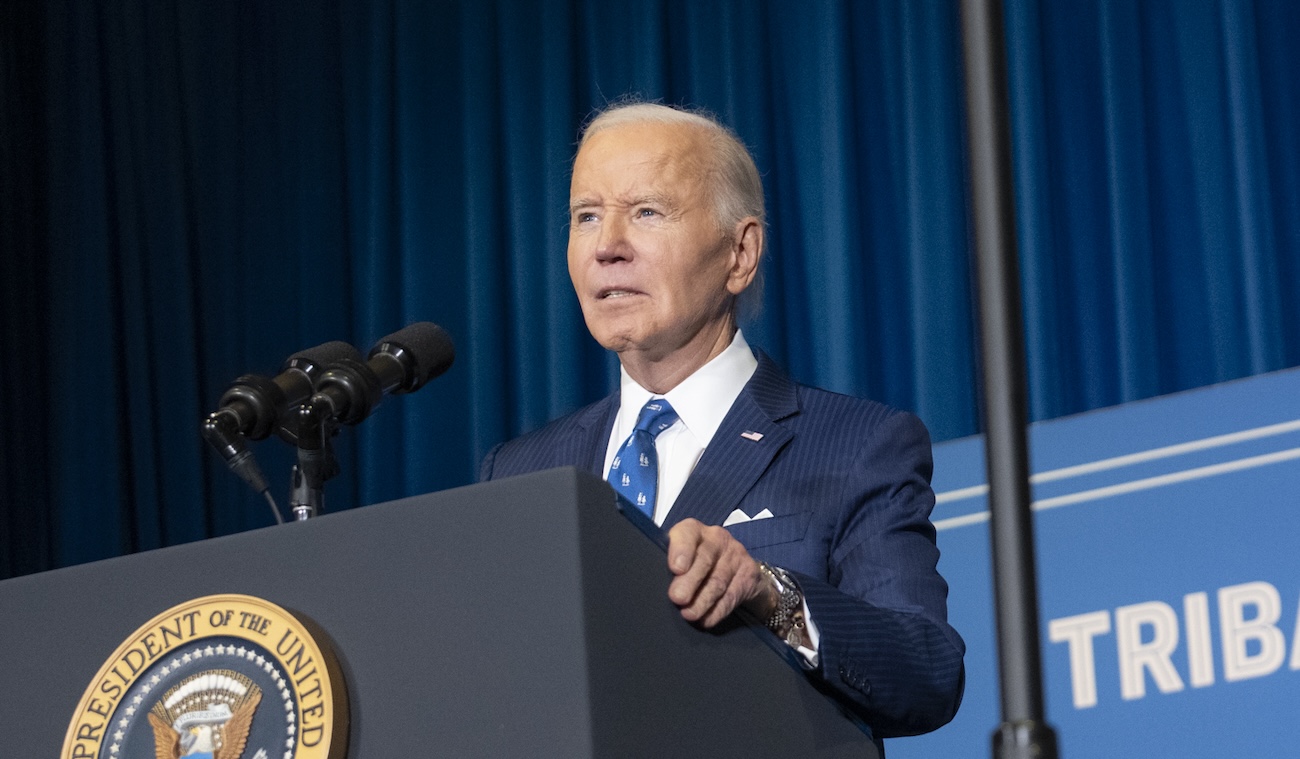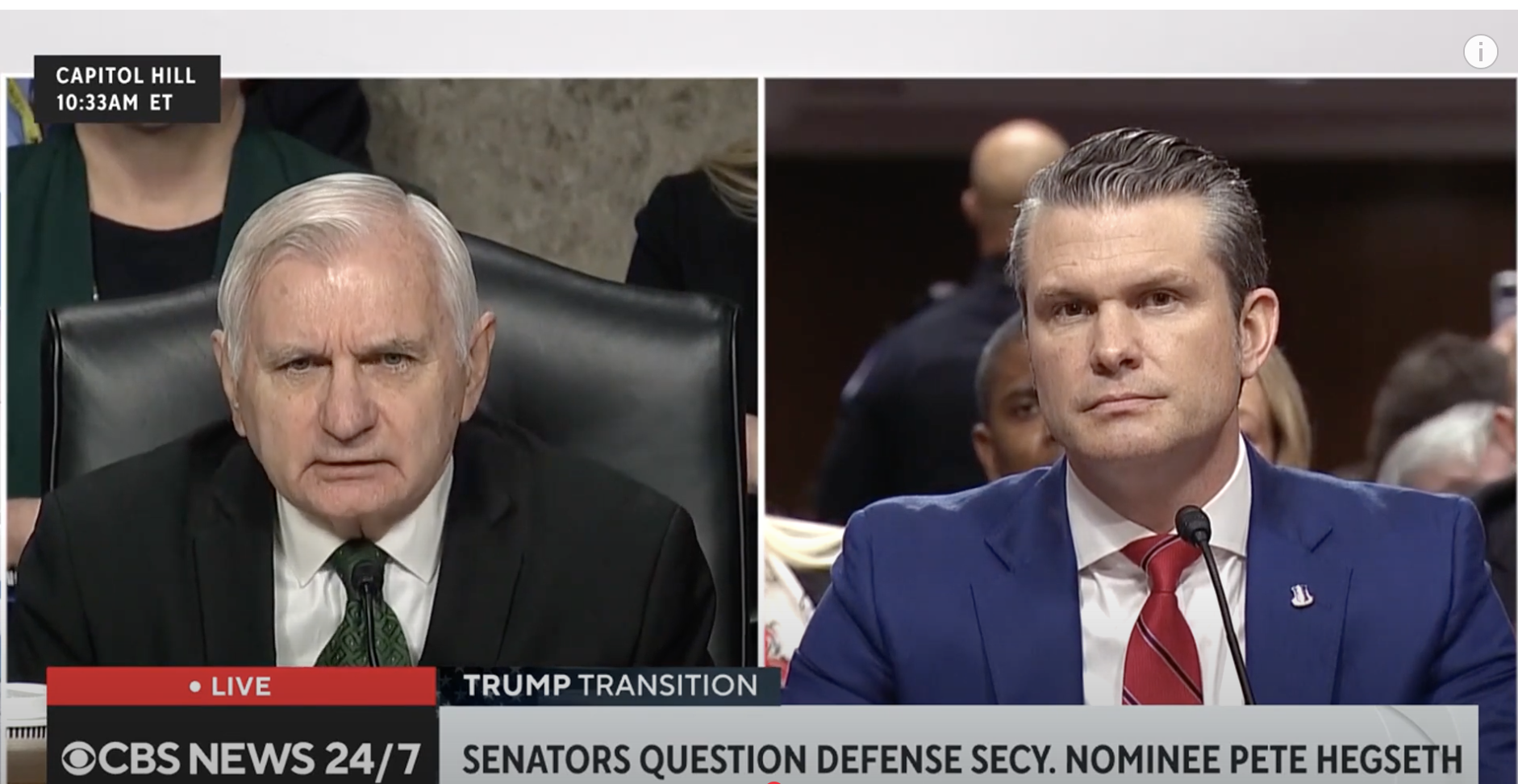ATF Nominee Steve Dettelbach’s Congress Sex Scandal Work Raises Ethics Questions
President Biden’s nominee to lead the Bureau of Alcohol, Tobacco, Firearms and Explosives is facing ethics questions about his work for a client during the Mark Foley congressional page sex scandal.
Critics of Steve Dettelbach question his decision to take the gig — in which he curtailed questioning of his client by House investigators — and say his work may have violated congressional rules on gifts.
Dettelbach, whose Senate confirmation hearing is Wednesday, represented Patrick Baugh, an aide for then-Rep. Jim Kolbe (R-Ariz.), who knew of an inappropriate interaction between Foley and a page five years before the Florida congressman’s misconduct publicly surfaced in 2006.
Dettelbach’s work on the case was a point of pride as he ascended to prominence in corporate law — and it even was the very first bullet point on a list of experience attached to his law firm biography for years afterward. Dettelbach ultimately reached the upper echelons of the US legal community and earned more than $1.7 million last year as a partner at BakerHostetler.
“Steve Dettelbach’s time representing Patrick Baugh in the notorious Foley page sex scandal demonstrates a complete lack of moral judgment,” said Tom Jones, president of the conservative American Accountability Foundation. “Mr. Baugh and his boss had evidence that former Congressman Mark Foley preyed on underage children, yet they refused to expose him.”
Baugh also said Dettelbach acted to shield him from questions he felt strayed too far from central issues about Foley’s misconduct, though he couldn’t remember what those questions entailed. The official committee report doesn’t address the matter.
According to the lengthy committee report on the Foley scandal, a former page who was a college freshman at the time contacted Kolbe in 2001 after Foley made reference to his penis size in an instant message. The ex-page said he emailed a copy of the IM to Kolbe’s personal email account, according to the report, though Kolbe claimed he didn’t see the IM and that the ex-page may have told Baugh first.
The report says Baugh, at Kolbe’s direction, communicated the complaint to Foley’s chief of staff. Foley shortly afterward apologized to the young man and the matter ultimately didn’t make headlines until 2006 when a pattern of predatory sexually charged messages to teen pages forced Foley’s resignation.

Baugh told the committee and The Post he never saw the IM that Foley wrote.
Foley’s misconduct primarily comprised inappropriate messages. However, press reports indicate the lawmaker had sex with at least two ex-pages after they turned 18. Kolbe, who served as an openly gay congressman from 1996 until he retired in 2007, had his own conduct scrutinized, including a 1996 camping trip with two former pages, but no specific allegation of misconduct emerged.
Baugh, who supports Dettelbach’s nomination, unwittingly armed Republican critics with leads when he responded to a Facebook message from Jones, a former GOP Hill staffer and opposition researcher.
Baugh confirmed the authenticity of the messages to The Post.
Baugh wrote to Jones that he may have received a “good deal” from Dettelbach and that “[b]asically he handled pro bono — I paid a fraction of what other staff (like [the chief of staff for Kolbe]) paid.” He recalled paying a “[f]lat fee” and speculated that Dettelbach’s “firm probably chalked the rest of his time up to pro bono work.”
Baugh also wrote in a Facebook message to Jones that Dettelbach “had me stop” answering the committee’s questions when he believed they “started veering off course.”
In conservations with The Post, Baugh said that his memory is foggy and that “I called it pro bono but I don’t know that it’s truly pro bono.” He said that based on his own experience working at a law firm, he believes Dettelbach may have billed a lower rate because “attorneys look for interesting work to do.”
Baugh added it’s conceivable that Dettelbach, with whom he met a couple of times before he faced questioning, did less work for him than other attorneys did for his colleagues.
Dettelbach told The Post through a Justice Department spokeswoman, “This was not a probono [sic] matter. The client was charged.” He did not specify the rate, however, or say if it was discounted.
Ethics expert Kedric Payne, general counsel of the Campaign Legal Center and a former deputy chief counsel of the Office of Congressional Ethics, said that staffers aren’t allowed to receive discounted legal representation under House rules, which set out limited permissible circumstances for accepting unpaid legal assistance.
“The Office of Congressional Ethics and the Committee on Ethics has a track record of enforcing these rules about receiving pro bono or discounted legal services,” Payne said. “Unlike other ethics rules, these rules are enforced and they have clear guidelines such that people should be able to comply.”
The rules bear on the recipient of legal services and can result in a requirement that the staffer or lawmaker in question pay the market rate for services, Payne said. They can also face additional sanctions, such as a letter of reprimand.
Jones said that Dettelbach should have known about the ethics rules, even if they bound only the conduct of his client.
Former officials who worked with Dettelbach said they disagreed with Jones’ claim that he in any way would have condoned Foley’s conduct, pointing to his office’s prosecution of about 50 trafficking cases.
Carole Rendon, who succeeded Dettelbach as US attorney in Cleveland before becoming one of his colleagues at BakerHostetler, said that his “strong record prosecuting dozens of cases and putting predators behind bars, underscores his commitment to protecting women and children.”
Former FBI supervisor Dave Dustin said, “Steve Dettelbach used the power of the federal government and federal statutes to combat juvenile sex trafficking and child exploitation like never before during his time as U.S. Attorney.”
Baugh, who still works as an administrative aide for multiple offices on Capitol Hill, told The Post that Dettelbach did curtail the questions of investigators but that he could not recall the details.
“At some point, he said, ‘Okay, we’re done,’” Baugh recalled of the committee grilling. “They recessed and he went and spoke with their counsel and came back and said, ‘We’re done.’ And that was the end of the hearing.”
Baugh said that Dettelbach objected because the focus drifted from “what he believed to be the purvey of the hearing” and that he believes he answered the most relevant questions.
If confirmed, Dettelbach would be the top official in charge of federal gun investigations and policy — a role that evokes fear particularly from gun rights advocates. Biden’s previous ATF nominee, David Chipman, flopped last year due to the qualms of Senate Democratic centrists.
" Conservative News Daily does not always share or support the views and opinions expressed here; they are just those of the writer."





Now loading...